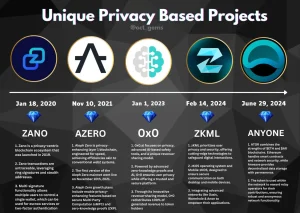
Management of student loans may feel like an imposition, but with proper strategies you can gain financial freedom and eliminate your debts.
Start by becoming acquainted with your loan types, interest rates and repayment options. Determine whether they are federal or private loans before looking into consolidation or refinancing options.
1. Know Your Loans
Though student loan payments were temporarily suspended during the COVID-19 pandemic, many will resume this fall and it is important to plan ahead to accommodate for them in your financial picture.
Once your loans are due for repayment, begin by determining how much of an outstanding balance remains when subtracting financial aid from total college costs and adding mandatory expenses such as tuition and fees.
Tracking all your federal loans using the National Student Loan Data System is useful, while private ones may not appear here; to do this, check your credit report or contact the lender directly before considering an income-driven repayment plan.
2. Create a Budget
Budgeting is the first step to eliminating debt. EveryDollar’s free budget tool makes creating one easier by prioritizing debt repayment over other expenses.
Make sure you include student loan payments in your budget and compare them against all your expenses. Remember to spend only what is affordable!
Payment early will save money in interest charges, reduce the burden of debt and free up money for other financial goals. Accelerating this timeline further by making extra payments such as biweekly or increasing payment amounts may speed the timeline even faster.
3. Increase Your Income
Budgets are essential tools for understanding both income and expenses. Once you know your baseline costs, subtract them from your take-home pay to calculate your discretionary income – this amount can then be allocated towards paying off debt and building an emergency fund.
Be familiar with the terms of your loans. Different loans have various rules regarding repayment, deferment and forgiveness – federal loans often offer lower interest rates and more flexible repayment plans than their private counterparts.
Consider making biweekly payments instead of monthly ones in order to reduce total interest costs and reach debt freedom faster. It won’t be easy, but this approach may help.
4. Repay Your Loans in Full
Like mortgage or car loans, student loans are an installment debt that must be paid back over time through monthly installments. If there is excess money left over after covering basic expenses, apply it toward paying off student loans instead.
Many borrowers prioritize paying down student loans by making extra payments or adding windfalls such as bonuses, tax refunds or birthday cash gifts directly into the principal balance. Others choose consolidation or refinancing to save on interest charges and lower payment amounts; whatever plan you select, make sure your servicer is following through by reviewing your monthly statement to ensure everything is going as expected.
5. Build an Emergency Fund
Paying off student debt should remain your number one priority; however, creating an emergency fund can also help cover unexpected expenses and prevent unnecessary debt accumulation in the future.
Try saving at least three to six months’ living expenses in an emergency fund via savings or money market accounts. Consider taking on part-time employment or finding other ways of supplementing income streams in order to build this emergency cushion.
Kantrowitz suggests that making payments just a bit higher each month could significantly speed up loan repayment time. To do this, speak to your student loan servicer about making bi-weekly rather than monthly payments – many student loan servicers provide discounts for borrowers choosing this method of repayment.
6. Avoid High-Interest Debt
Your loans may accrue interest while you attend school and during the six-month grace period following graduation unless they’re deferred or subsidized, adding it to your principal balance and capitalizing over time.
Staying within budget and prioritizing student loan payments will help to limit high-interest debt. Consider finding additional sources of income like second jobs, side hustles or money-saving apps as ways to bolster savings more. Keep on top of payments to avoid late payments which could damage your credit, especially since defaulting on federal loans could result in garnishment of wages, withholding of tax refunds, denying future benefits like Social Security etc – with private loans potentially having more severe repercussions.







